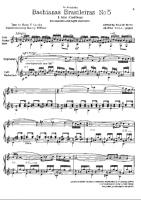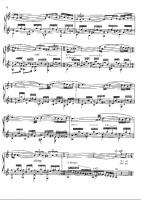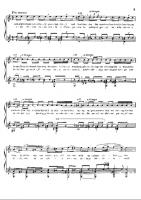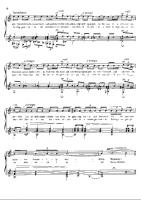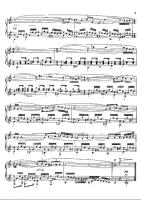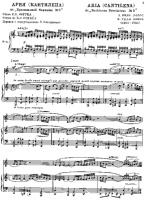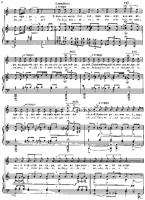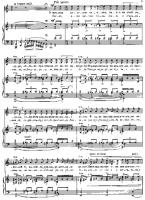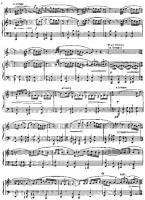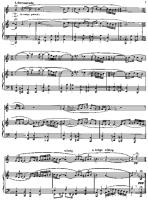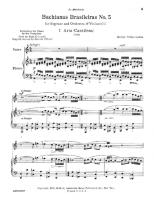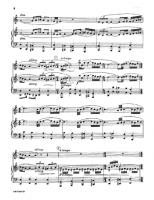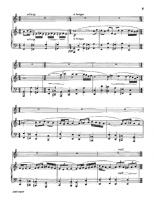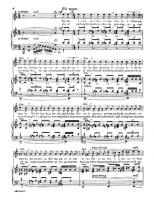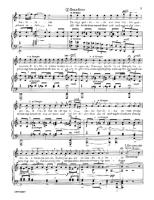Heitor Villa-Lobos Sheet Music
 Heitor Villa-Lobos (March 5, 1887 – November 17, 1959) was a Brazilian composer, described as "the single most significant creative figure in 20th-century Brazilian art music". Villa-Lobos has become the best-known and most significant Latin American composer to date. He wrote numerous orchestral, chamber, instrumental and vocal works. His music was influenced by both Brazilian folk music and by stylistic elements from the European classical tradition, as exemplified by his Bachianas Brasileiras ("Brazilian Bachian-pieces").
Heitor Villa-Lobos (March 5, 1887 – November 17, 1959) was a Brazilian composer, described as "the single most significant creative figure in 20th-century Brazilian art music". Villa-Lobos has become the best-known and most significant Latin American composer to date. He wrote numerous orchestral, chamber, instrumental and vocal works. His music was influenced by both Brazilian folk music and by stylistic elements from the European classical tradition, as exemplified by his Bachianas Brasileiras ("Brazilian Bachian-pieces").His earliest pieces originated in guitar improvisations, for example Panqueca ("Pancake") of 1900. The concert series of 1915–21 included first performances of pieces demonstrating originality and virtuosic technique. Some of these pieces are early examples of elements of importance throughout his œuvre. His attachment to the Iberian Peninsula is demonstrated in Canção Ibéria of 1914 and in orchestral transcriptions of some of Enrique Granados' piano Goyescas (1918, now lost). Other themes that were to recur in his later work include the anguish and despair of the piece Desesperança— Sonata Phantastica e Capricciosa no. 1 (1915), a violin sonata including "histrionic and violently contrasting emotions", the birds of L'oiseau blessé d'une flèche (1913), the mother-child relationship (not usually a happy one in Villa-Lobos's music) in Les mères of 1914, and the flowers of Suíte floral for piano of 1916–18 which reappeared in Distribuição de flores for flute and guitar of 1937.
Reconciling European tradition and Brazilian influences was also an element that bore fruit more formally later. His earliest published work Pequena suíte for cello and piano of 1913 shows a love for the cello, but is not notably Brazilian, although it contains elements that were to resurface later. His three-movement String Quartet no. 1 (Suíte graciosa) of 1915 (expanded to six movements ca. 1947) is influenced by European opera, while Três danças características (africanas e indígenas) of 1914–16 for piano, later arranged for octet and subsequently orchestrated, is radically influenced by the tribal music of the Caripunas Indians of Mato Grosso.
With his tone poems Amazonas (1916, first performed in Paris in 1929) and Uirapurú (1916, first performed 1935) he created works dominated by indigenous Brazilian influences. The works use Brazilian folk tales and characters, imitations of the sounds of the jungle and its fauna, imitations of the sound of the nose-flute by the violinophone, and not least imitations of the uirapuru itself.
Heitor Villa-Lobos - canto do cisne negro Piano Sheet Music
Advertisement
Advertisement
Please click on the button to get the sheet music
You can share this sheet on your Twitter or Facebook account to let your friends know too!
Comments about canto do cisne negro by Heitor Villa-Lobos
There are no comments yet
Name (required)
Email (required, will not be published)
Email (required, will not be published)
Total 0/1000 chars
Other music sheets of Heitor Villa-Lobos
Search for Free Sheet Music
You can make a search through the entire collection of sheets.
You can make a search through the entire collection of sheets.
Latest Artists
Chabrier
× 1
Backstreet Boys × 1
Nat King Cole × 1
Nguyen Duy × 1
Gary Portnoy × 1
Sofia Rotaru × 1
Irving Berlin × 2
Don McLean × 2
Giuseppe Giordani × 1
Josephine Cheong × 1
Tomaso Antonio Vitali × 1
Ezekiel × 1
Paul Smadbeck × 1
Violeta Parra × 1
Tenmon × 1
Arthur Hamilton × 1
Bernard Dewagtere × 2
Fleetwood Mac × 1
Jo Privat × 1
Journey × 1
Zoltan Paulinyi × 1
Nicola matteis × 1
An American Tail × 1
Brent England × 1
No Doubt × 1
Hello Dolly! × 1
The Carpenters × 1
Neftali Medina × 1
Johann Pachelbel × 1
Lin -Manuel Miranda × 1
ost × 1
Vince Guaraldi × 1
Bob Watson × 1
Armando Manzanero × 1
Raul Di Blasio × 1
Howie Day × 1
Win Mertens × 1
Chick Corea × 1
Jay Chattaway × 1
Michael Kooman × 1
Coalo Zamarano × 1
The Crusaders × 1
Francis Poulenc × 2
Genesis × 1
Steve Baker × 1
Garou × 1
George F. Root × 1
Carl Reinecke × 1
Luis MIguel × 1
Alfred Newman × 1
Backstreet Boys × 1
Nat King Cole × 1
Nguyen Duy × 1
Gary Portnoy × 1
Sofia Rotaru × 1
Irving Berlin × 2
Don McLean × 2
Giuseppe Giordani × 1
Josephine Cheong × 1
Tomaso Antonio Vitali × 1
Ezekiel × 1
Paul Smadbeck × 1
Violeta Parra × 1
Tenmon × 1
Arthur Hamilton × 1
Bernard Dewagtere × 2
Fleetwood Mac × 1
Jo Privat × 1
Journey × 1
Zoltan Paulinyi × 1
Nicola matteis × 1
An American Tail × 1
Brent England × 1
No Doubt × 1
Hello Dolly! × 1
The Carpenters × 1
Neftali Medina × 1
Johann Pachelbel × 1
Lin -Manuel Miranda × 1
ost × 1
Vince Guaraldi × 1
Bob Watson × 1
Armando Manzanero × 1
Raul Di Blasio × 1
Howie Day × 1
Win Mertens × 1
Chick Corea × 1
Jay Chattaway × 1
Michael Kooman × 1
Coalo Zamarano × 1
The Crusaders × 1
Francis Poulenc × 2
Genesis × 1
Steve Baker × 1
Garou × 1
George F. Root × 1
Carl Reinecke × 1
Luis MIguel × 1
Alfred Newman × 1


